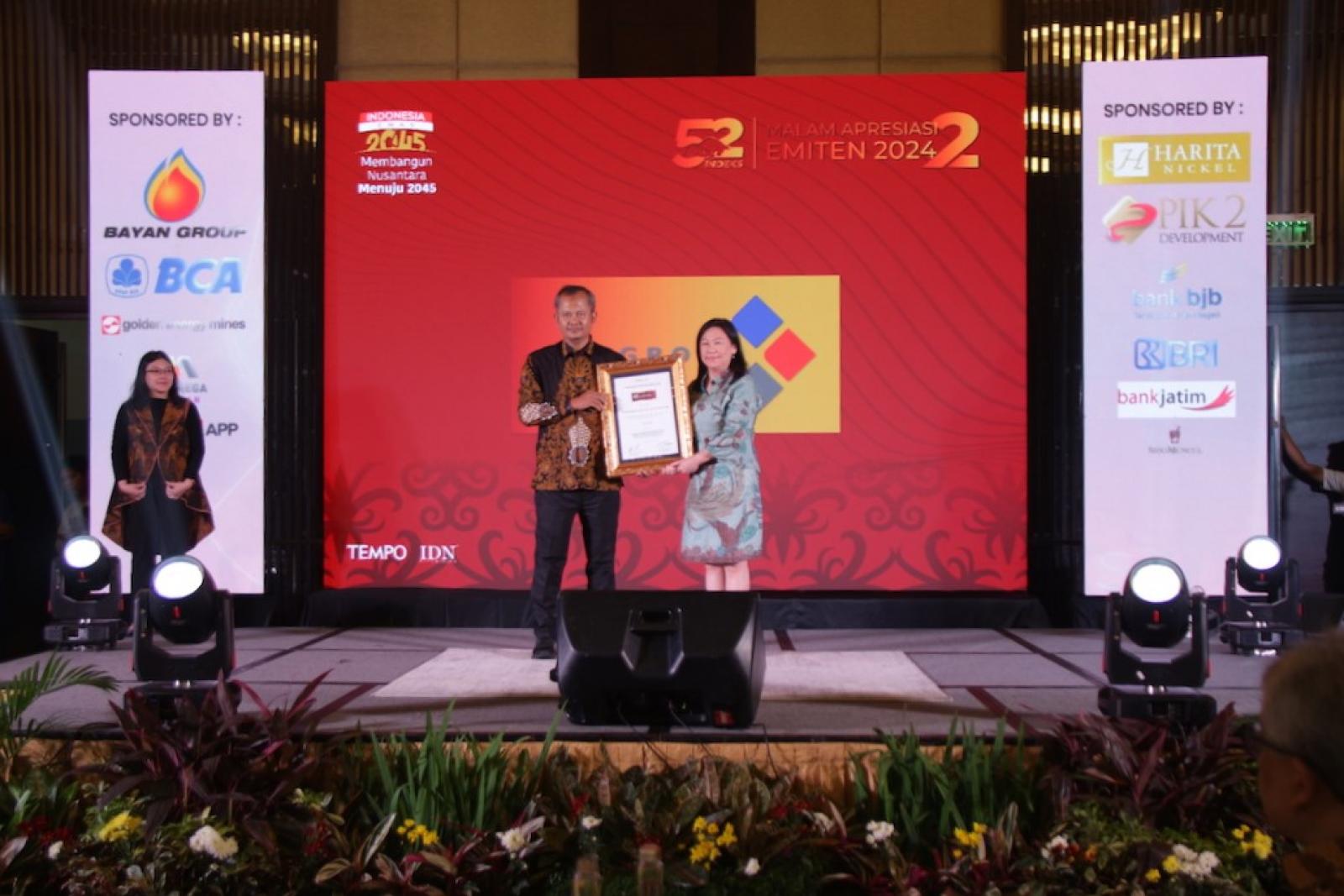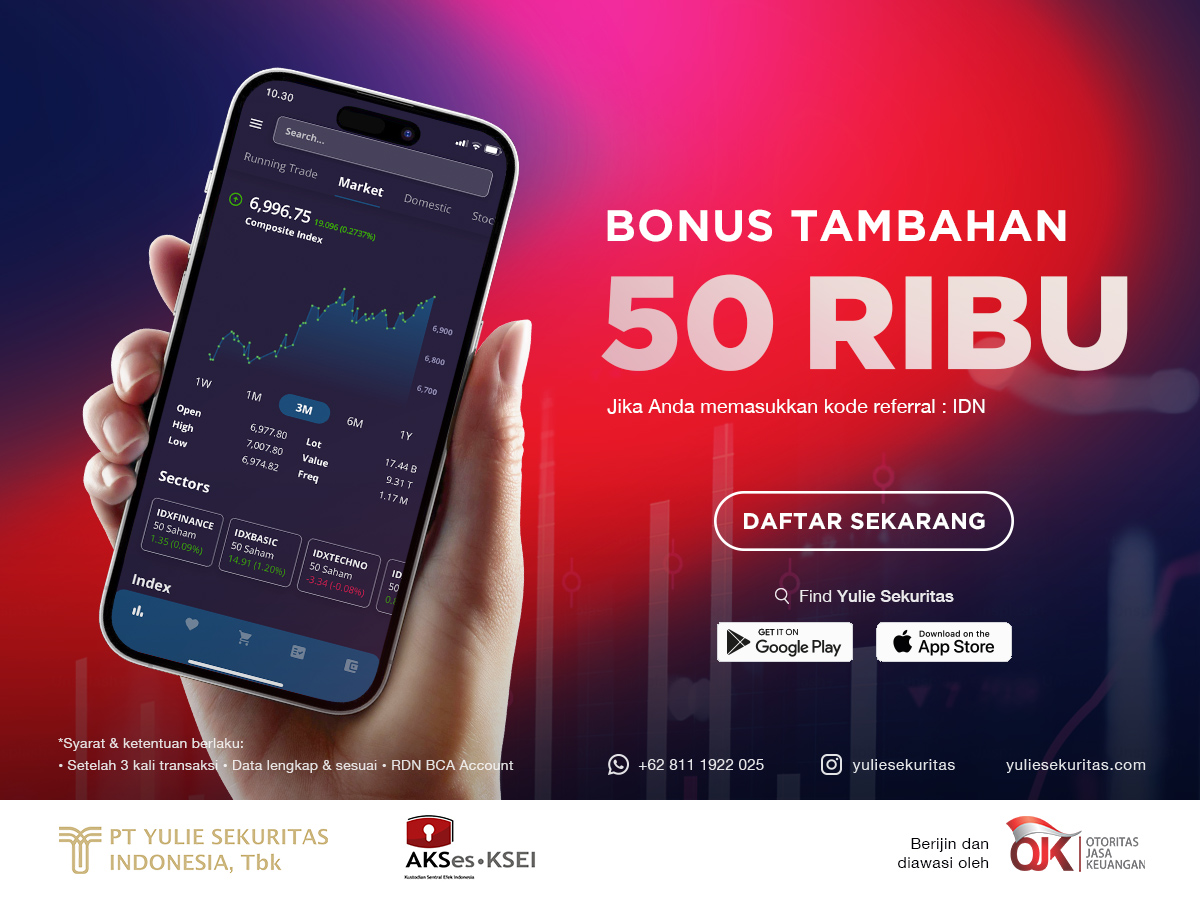Stable dividend growth, DSNG still categorised under High Dividend of Indeks52

JAKARTA - PT Dharma Satya Nusantara Tbk (DSNG),a crude palm oil (CPO) manufacturer, reenters High DIvidend category of Indeks52, following major evaluation of its criteria. DSNG still reports steady growth in its average dividend yield for the past 5 years.
Based on the compiled data, DSNG recorded market cap of IDR 6.12 trillion as of March 2024, with net profit of IDR 226.06 billion, up from IDR 213.76 billion seen in Q1 2023. Its gross profit also increased to IDR 613.03 billion from IDR 523.21 billion, while revenue soared to IDR 2.23 trillion from IDR 2.06 trillion.
For fiscal year (FY) 2023, DSNG distributed dividend of IDR 233.19 billion, or IDR 22 per share, which was taken out of its net profit of IDR 893.80 billion. Unrestricted retained earnings were at IDR 5.50 trillion, and total equity was IDR 8.88 trillion. For the record, DSNG’s price level was at IDR 620 per share on the dividend payment date, on July 4, 2024.
For FY 2022, the issuer reportedly allocated dividend of IDR 317.99 billion or IDR 30 per share. On the date of dividend payment, on July 6, 2023, DSNG’s price was at IDR 565 per share.
The selection process of Indeks52 constituents is through an evaluation of several criteria, including market cap size, growth rate, average dividend yield, number of shareholders, average of frequency and volume of daily transaction, as well as minimum free float rate of 7.5%.
Total market cap of Main Index category of Indeks52 reaches IDR 8.25 quadrillion or 71.46% of total market cap in the stock exchange of IDR 11.55 quadrillion. For High Growth category, total market cap recorded is IDR 7.22 quadrillion, or equal to 62.48% of total market cap in the stock market.
In High Dividend category, the market cap is IDR 5.95 quadrillion, or 51.51% of total market cap, while Big Market Cap category’s portion reaches IDR 84.97 quadrillion or 73.65% of total market cap.
It is worth mentioning that Indeks52 lists 84 issuers as constituents, which come from various industries, including healthcare, property, modern retail, energy, infrastructure, coal and mineral mining, and processed food and beverages. The result of this recent evaluation will be effective until next year. (LK/ZH)

